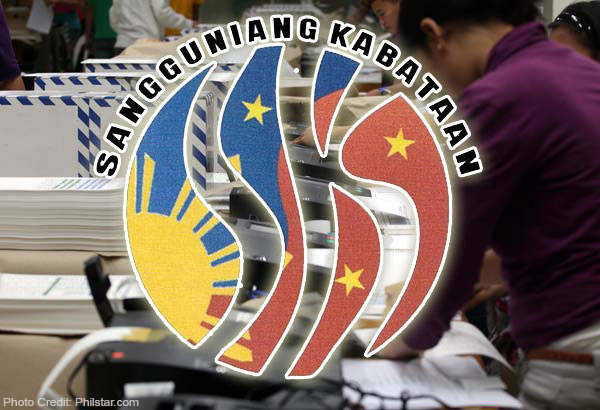Transcript of Sen. Bam Aquino’s Interview on the Internet, SK and BBL
On the Slow and Expensive Internet
Q: Sir how likely iyong pino-propose na one-stop shop?
A: Iyan ang commitment ng NTC na mag-one-stop shop sila dahil lumabas sa ating hearing na ang isang telco ay mangangailangan ng sixteen steps, maybe six to seven national government agencies, pati iyong local government permits napakatagal it takes about six months to get any permit para makapagtayo ng tower (cell site) o ng infrastructure.
Alam natin na kapag dumadami ang infrastructure natin, mas bibilis iyong Internet connection natin.
Tinalakay natin sa hearing ngayon kung paano pabilisin ang proseso, push for ease of doing business at magkaroon ng very real solution to increasing our Internet speed.
On the side of DILG, nag-commit sila na kausapin iyong mga liga, cities, municipalities at provinces para maging standard ang mga fees na sinisingil at mga proseso para makakuha ng permit ang ating mga telcos.
Ang NTC naman, nag-commit sila na simulan iyong proseso ng pagbuo ng isang one-stop shop para lahat ng ahensiyang kinakailangan para magtayo ng towers, sa kanila na lang pupunta at kukunin ang permits na iyon.
Lumalabas na DENR, DOE, DPWH, DOH, all of these agencies ay kailangang puntahan para makapagtayo ng isang Internet facility.
We’re hoping na mapabilis ang proseso and this can be one of the solutions para mapabilis ang Internet speed sa Pilipinas.
Q: Ibig sabihin, magmumura rin ang rate ng Internet?
A: Not necessarily. This hearing was not on the rates.
This was on pagtulak ng infrastructure para magkaroon ng maraming towers at mga facilities para bumilis ang ating internet speed.
Q: May agreement na ba sa minimum speed?
A: That was the subject of our NTC hearing noong November.
The second hearing will be in February kaya hinihikayat natin ang mga kababayan natin to follow live on Twitter. Nila-live tweet natin ang NTC hearings.
Iyong second hearing nila will be on Feb. 16 at iyong paglabas ng kanilang memo circular will be in March.
Ang maganda po riyan, naging bukas ang NTC na tanggapin ang suggestions ng civil society partners at iba pang netizens upang magkaroon ng totoo at tamang batayan sa Internet speed.
Ang naging contention po ngayon, wala pong opisyal na batayan sa ating Internet speed.
Kapag lumabas po iyon, puwede nang ibangga iyong opisyal na speed na iyon sa nakalagay sa advertisements natin kung naaabot ba ang naka-advertise na bilis sa nakukuha ng consumer.
Q: Ano ba dapat ang bilis?
A: Dapat nakukuha mo ang binabayaran mo. In short, kung five dapat five. Pag sinabing ten dapat 10. Kapag sinabing one, one lang diyan dahil ang assumption ay mura ang binabayaran mo.
Iyong mahalaga, and this is why it becomes a consumer issue kaya sa committee on trade, na iyong binabayaran ng ating mga kababayan ay nakukuha ang katumbas.
Hindi puwedeng mataas ang binabayaran tapos ang nakukuha ay substandard.
On the Sangguniang Kabataan Reforms
Q: Iyon pong sa SK, may hearing sa Congress mamaya. Kailan po ang naka-schedule na pagdedeliberate dito?
A: Ongoing na po iyan. Iyong SK reform bill nakahain na po iyan sa plenaryo and we’re hoping by March, maipasa na natin ang SK reform bill.
Ang panawagan namin sa Kongreso, at natutuwa naman kaming pumayag sila, ay sabay ang pagpasa at postponement ng SK reform bill.
Kung ipo-postpone lang po natin iyan na walang kasiguruhan kung kailan ang next election at walang nabago sa sistema, hindi po maganda iyan.
Ang main na panawagan namin sa Kongreso, this quarter we pass both the postponement and the SK reform bill, para pagbalik ng SK come 2016 kasabay ng barangay election, nakareporma na ito at bago na ang patakaran niya.
Specifically, gusto naming itaas iyong age ng SK officials mula 15 to 17 na aminado tayong lahat na masyadong bata to 18 to 24.
Magkaroon ng isang anti-dynasty provision na bawal maging SK chairman at mga kagawad ang mga anak ng barangay captain at barangay kagawad. I think malaking reporma ito.
Pangatlo, iyong mandatory training na kailangang dumaan sa tamang training ang lahat ng uupo sa SK para alam talaga nila ang patakaran ng good governance at patakaran ng pag-handle ng budget.
Pang-apat, ang pagsama ng iba pang youth organizations sa municipal council o iyong tinatawag nating local youth development council. Nakita natin na maraming kabataan na nagpa-participate pero hindi bilang SK, pero bilang council leader, bilang volunteer sa NGO o bilang volunteer sa kanilang simbahan.
Iyong structure na iyon ay dapat sumuporta din doon sa SK na bumubuo iyong local youth council na bubuuin ng iba’t ibang youth leaders at volunteers.
Ito ang apat na main reforms natin sa SK na gustong itulak para pagbalik po ng SK natin, hopefully, isa na itong body that we can really be proud of at talagang maaabot ang hangaring makatulong sa kabataan.
On the Basic Bangsomoro Law
Q: With recent developments, are you withdrawing support behind BBL?
A: I think we should still pursue the BBL, in light of all the things that happened. Tatalakayin, kung hindi ako nagkakamali, sa susunod na linggo ang nangyari sa Maguindanao. I think all of us are interested to know kung bakit nangyari iyon, ano ang mga dahilan kung bakit tayo umabot doon.
Coming from that hearing, I’m sure na magkakaroon ng revision or amendments sa BBL. Remember we are still in the process of deliberation.
Iyong porma ng BBL, magbabago pa iyan. I think it’s premature to just say wag na lang.
Kung kailangang amyendahan iyan o baguhin iyan because of what happened, then gawin natin iyon. That’s the process of legislation.
Ang mahirap lang kasi ay papakawalan na natin agad. Hindi siya either or. Hindi ibig sabihin na papakawalan natin ito dahil nangyari ito or the other way around.
Mahalagang imbestigahan natin. We find out what really happened. Managot ang dapat managot.
Ask the difficult questions. At the same time, tingnan natin iyong kalalabasan noon doon sa BBL process natin.
I’m just hoping na huwag tayong magkaroon ng gut reaction na pakawalan agad natin dahil because of what happened. At the same time, alamin natin kung ano ba ang nangyari talaga and of course, iyong mga dapat managot, talagang managot sila.
People died. Ang daming namatay na kapulisan natin. Hindi puwedeng mawala na lang iyon. That has to be investigated, and if there charges that have to be filed, they have to be filed.
Q: How should we address ang demoralization among members ng SAF?
A: That’s why we will have that hearing next week. Hindi katanggap-tanggap na in the midst of peace process na nangyari ang isang bagay na iyon.
We need to find what really happened. At kung may mga taong dapat managot dahil diyan, dapat managot talaga sila.
Q: There were reports that the suspended PNP was behind the operation?
A: I don’t know the inside story kaya tayo mag-iimbestiga para malaman talaga natin.
Q: Sa rules, puwede pa ba siyang mag-command kahit suspended siya?
A: I don’t know the specific rules ng PNP, but ako like all of you, I’m very interested to join the hearing and participate so we can get to the bottom of this.
Q: You’re among those who signed BBL –
A: Yes. I’m not withdrawing. As I said we should continue the process. Hindi ibig sabihin na ipagpapatuloy ang proseso na we will sweep this under the rug.
We have to contend with what happened in Maguindanao. Napakaraming pamilya ang nawalan ng breadwinners, mga ama.
That has to be settled and we have to find out what really happened. And that can be done through the investigations here.
I predict na because of that, there will be amendments or changes na mangyayari sa BBL. I just think that it’s a gut reaction to let go of the peace process right after this tragedy had happened.
Magandang pag-usapan na muna kung anong nangyari, imbestigahan, charged those who need to be charged. Get to the bottom of things and then see paano mababago ang BBL because of that.
Palagay ko, ang hangarin natin na magkaroon ng kapayapaan, hindi dapat maantala dahil sa nangyaring trahedya.
Q: Ano ang tingin niyo na possible impact if lawmakers decide not to pass the BBL?
A: Iyong goals ng BBL na magkaroon ng peace and development sa Mindanao, hindi matutuloy. This is a landmark legislation, a landmark move of our country.
It has the potential to change the way our country is. I’m hoping na we find out what really, charged those who need to be charged, matulungan natin iyong pamilya ng mga namatayan.
At the same time, see if the BBL needs to be changed or modified because of that and we move from there. Pero sana iyong hangarin na magkaroon ng kapayapaan dahil sa batas, hindi mawala at hindi tayo mawalan ng momentum doon sa pagtulak nito.
At the same time rin, hindi rin natin dapat madaliin. We cannot also rush an important legislation.
I predict that we will go through the investigations, magkakaroon ng mga amendments pero iyong hangarin natin, dapat ituloy pa rin natin.
Q: Matutuloy po ba ang timeframe niya?
A: I doubt that it will be passed by March.
Again, the committees are still hearing it. Hindi ganoon kabilis ang pangyayari, especially sa ganito katindi at kahalagang lehislasyon.
So I’m still hoping we can get it passed this year. Pero sana huwag nating pakawalan o huwag tayong bumitiw ng basta-basta.



Recent Comments